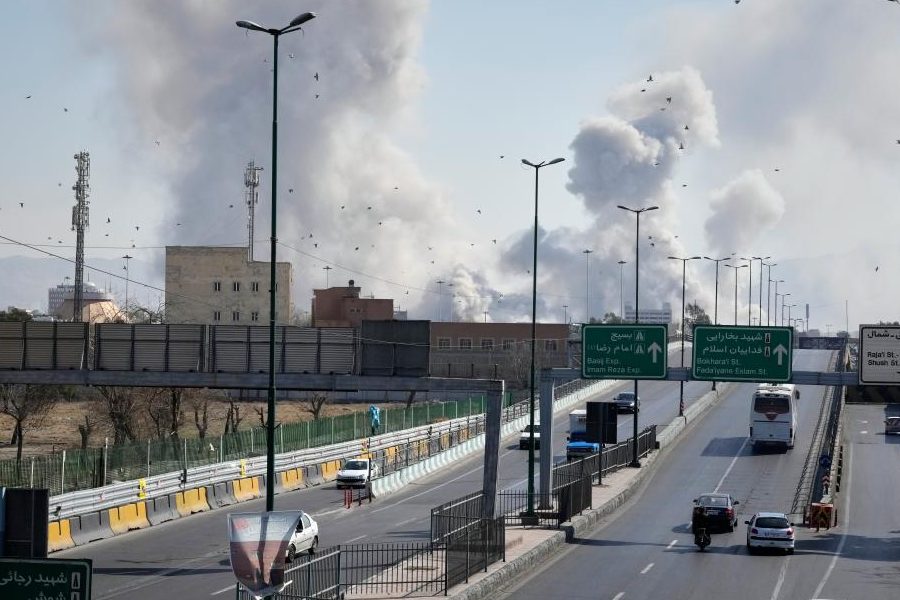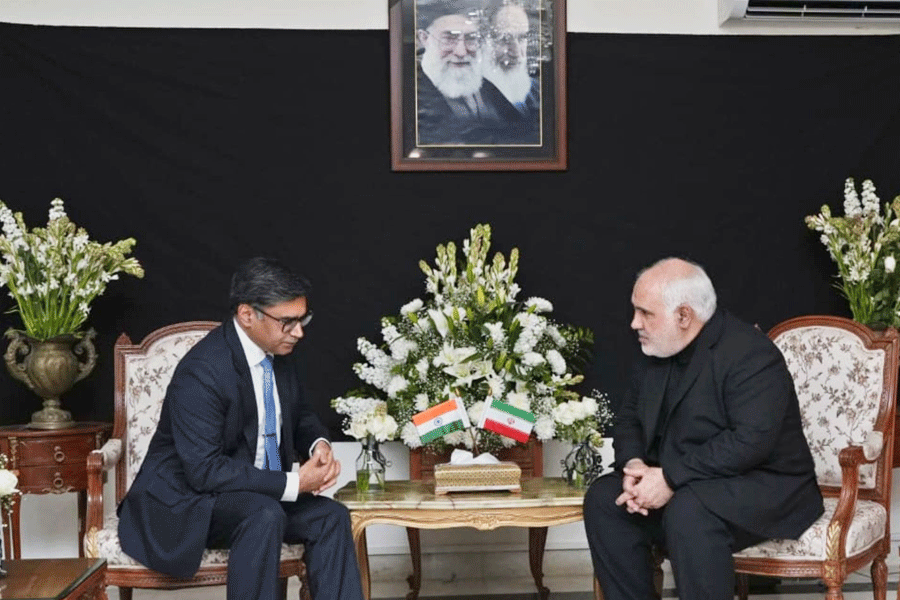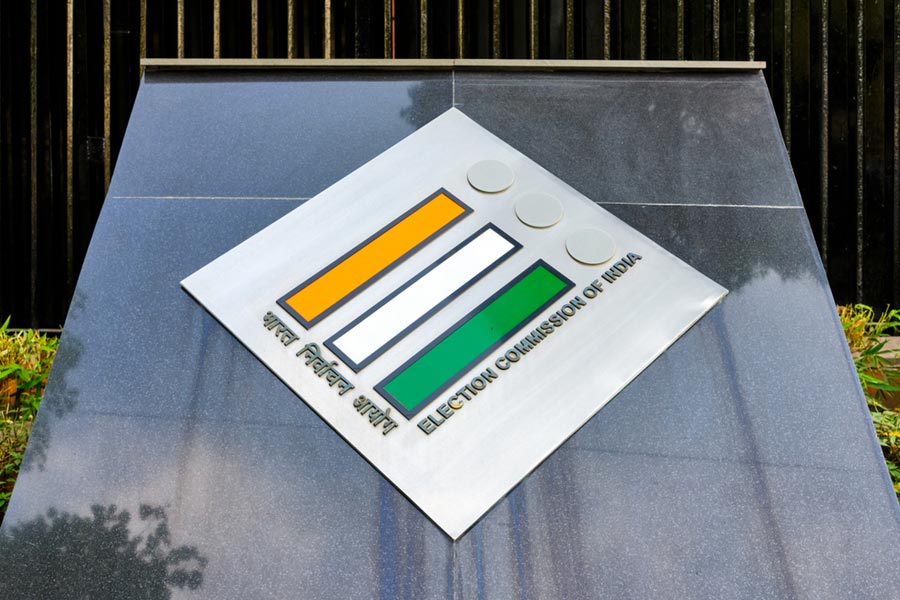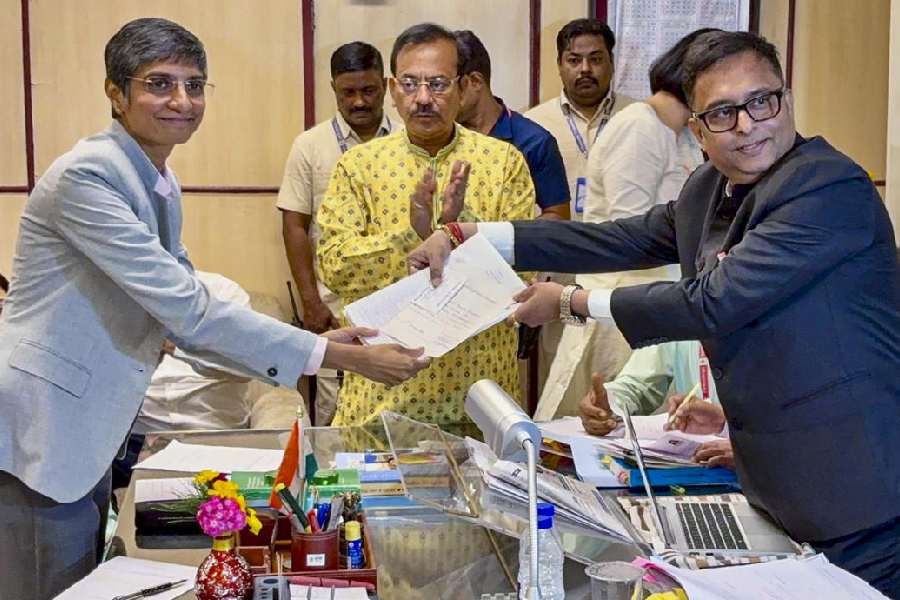 |
New Delhi, April 29: Most women officers in the armed forces bypass the chain of command and seek undue privileges from superiors, an inter- services committee has told the ministry of defence.
Nearly 60 per cent of lady officers seek to access commanders bypassing their immediate seniors — a strict no-no in the military where hierarchy is rigid and deemed necessary for discipline. They want special privileges such as comfort postings, the report has noted and quoted figures from a survey among the armed forces’ officer cadre.
A total of 46 per cent of the respondents from among 674 officers said: “Yes, women seek preferential treatment for leave, appointment and absence.”
“A majority of women officers are in favour of permanent commission,” the inter-services committee has noted in its 98-page report submitted to the defence ministry.
“On the other hand, senior officers and officers associated with women have indicated that women officers do not measure up to the standard needed for grant of permanent commission,” the committee comprising officers of the three services has said in the report titled “Women in the Armed Forces”.
“Once women officers have children, it is difficult for them to balance between service needs and demands of family,” it said.
The committee has recommended to the Centre that lady officers in the army, navy and air force not be granted permanent commission for another 10 years at least. “There is a gestation period of 10 years before we reconsider the demand to grant permanent commission to lady officers,” a senior official in the defence ministry told The Telegraph.
The committee has also emphasised in the report that there is a gender bias in the armed forces. “There is a need for training (against gender bias) at all levels,” and not only among personnel below officer rank. It said that even instructors in training academies needed to be sensitised.
There needs to be a gender-sensitisation campaign initiated by army headquarters and commands from formation-level downwards, the report has said. This includes all corps, brigades and battalions in the army and corresponding units in the navy and the air force.
Surprising for a military study, the report does not comment on how lady officers have impacted fighting ability. But it has ruled out putting women in units that go into combat. Women have been taken into the armed forces on short service commission since 1993 — 14 years ago.
The report also does not dwell on discrimination in jobs for women within the services. For example, lady officers in the Indian Air Force fly helicopters but they are not permitted to do so in the Army Aviation Corps although many of the machines flown are the same.
For its study, the inter-services committee interviewed 674 officers, including 291 women. Among the interviewees were 355 officers from the army, 76 from the navy and 243 from the air force. A total of 274 men were from the “peer group” (of or around the same ranks) as the women interviewed.
The report was prepared after former defence minister Pranab Mukherjee instructed the chiefs of staff committee in June last year to study if lady officers can be put on a par with the men and given a full length of service.
It followed a furore following the suicide by a lady lieutenant, Susmita Chakraborty, and remarks attributed to former army vice-chief Lt Gen. S. Pattabhiraman. The vice-chief purportedly said the army could do without women. He later apologised.
But without using the same words, the inter-services committee is in favour of keeping women out of the cutting edge of military service.
The committee has written that it has “felt the necessity for a scope to utilise women in non-combat areas like the Directorate General of Quality Assurance, Defence Research and Development Organisation and the Military Engineering Services (MES), where so far the women are not there”.
The chiefs of staff committee instructed the Integrated Defence Staff to conduct the study. The report was prepared by the assistant chief of Integrated Defence Staff (training and doctrines), Air Vice-Marshal T.S Randhawa. In the committee were four officers from the army, two from the navy and three from the air force.
The committee asked its interviewees 14 questions on aspects relating to selection of officers, training standards, grant of permanent commission, employment conditions and cadre management.











